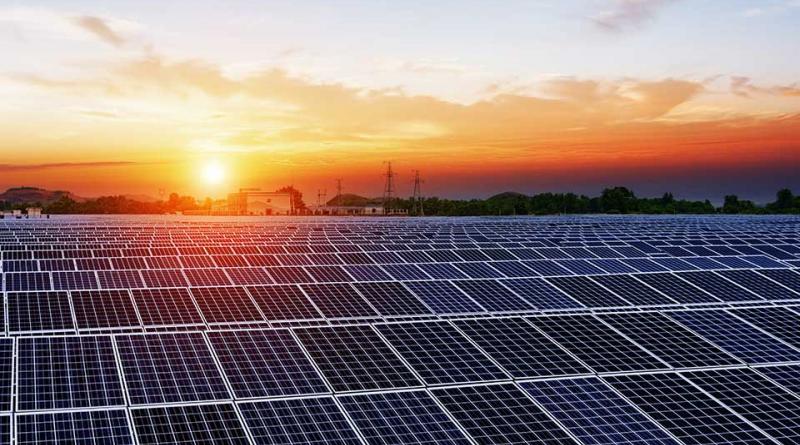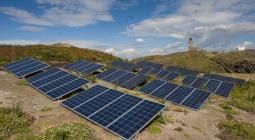New UN standards for assessment of solar and wind energy resources could spur investment in renewables .

28 October 2019 - Renewable energy now accounts for around one third of global power generation capacity, with increases being led by investments in solar photovoltaics (PV) and wind energy. More than 180 GW of renewable energy were installed in 2018, of which 100 GW were solar PV. As the costs of renewables continue to fall, solar PV and wind energy are now considered cost-competitive on a kWh basis with fossil fuel-fired power plants, and today represent the cheapest options for electricity generation in many countries. The European Commission has included both solar PV and offshore wind as key components of its long-term strategy for reaching carbon neutrality by 2050.
To accelerate the shift to renewable energy, UNECE has prepared specifications that enable the classification and reporting of solar and wind energy resources in an internationally-harmonized manner.
The new specifications will make it possible to assess wind and solar energy resources in different geographical contexts in comparison with alternative energy sources. The ability of governments and companies to understand and compare competing energy sources is essential for navigating energy transitions and transformations.
The assessments will inform policy decisions on increasing renewable energy investments, with significant potential for climate action. Because solar and wind power generating units are relatively quick to install, the policy decisions could lead to near-term progress on countries’ sustainable energy transition. The technologies have the potential to change fundamentally the way electricity and wider energy systems are organised.
The specifications, developed by an international team of experts, are part of the United Nations Framework Classification for Resources (UNFC), a global system used by countries and companies to classify and report both non-renewable and renewable resources. UNFC is unique in that it is a system of classification for all energy and mineral resources and it includes accompanying guidelines on addressing environmental and social issues.
Following review and endorsement of the solar and wind specifications by the UNECE Committee on Sustainable Energy at its recent session in Geneva, UNFC is now operational for both solar and wind energy. UNFC is already operational for bioenergy and geothermal energy, and the UNECE Expert Group on Resource Management (EGRM) is developing further specifications for hydropower and marine energy.
The next step for the UNFC solar and wind work will be to develop case studies that demonstrate real-world applications of the specifications and that raise awareness of their value for investments in solar and wind energy production. Importantly, UNFC is applied at the project level allowing management of mixed energy resource portfolios. The Expert Group is soliciting interest from countries and companies to prepare case studies.
“The UNFC solar and wind specifications are designed to classify solar and wind energy resources in a way that reflects the phases of their development projects while allowing comparison with other energy resources,” said Frank Denelle, Chair of the EGRM Renewable Energy Working Group. “Applying these new specifications in case studies is the next critical step that will demonstrate their unique value to all countries and companies striving to increase their solar and wind energy production through the most effective use of their investments”.
Speaking about the urgency to transition to a sustainable energy future, UNECE Sustainable Energy Director Scott Foster noted “With the solar and wind specifications now operational, UNFC has taken yet another step to becoming the global system of classification for the world’s energy system. We encourage all energy resource stakeholders to use UNFC to optimize their resource portfolios in line with the 2030 Agenda for Sustainable Development, thereby contributing to investment in and development of sustainable energy.”
For more information on UNFC and its application to solar and wind energy, visit: https://www.unece.org/energy/se/reserves.html
Interest to undertake a solar or wind energy case study should be addressed to: reserves.energy@un.org
6 November 2019
UNECE




